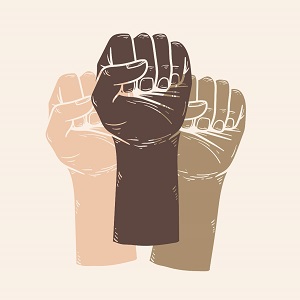List of Fundamental RightsRights are a very powerful concept. Everyone has some rights like students have some rights in school/college, employees have some rights in office, customers have some rights, the public has some rights, the government has some rights, etc. All these rights are reserved for that particular place. But as a citizen belongs to the country we all have some equal rights. These basic rights are called fundamental rights. Let's discuss in detail and know the meaning of fundamental rights: What are Fundamental Rights?After the freedom from the British Crown, the officials, the freedom fighters, and other renowned and intellectual leaders decided to make our own Constitution. During the composition of the Indian Constitution, Motilal Nehru demands fundamental rights for the citizens of India. The concept of fundamental rights has been adopted from the Constitution of the USA.The fundamental rights are described in Part 3rdof the Constitution.
Special Features of the Fundamental RightsThere are some special features of the fundamental rights which are important to know for everyone. Let's know about these features in detail: 
List of Fundamental RightsThere istotal a total of six fundamental rights that are mentioned in the Indian Constitution. These rights are described below:
All these rights are known as fundamental rights. Secular, freedom, republic, democratic and equality; are the pillars of these rights. #1Right to EqualityThis is the first and foremost rightthat is mentioned in Articles 14-18 in the constitution of India. This right guarantees equality among everyone, irrespective of their caste, religion, gender, or place of birth. This right has been made to demolish the ridiculous concept of Untouchability which was the curse for our country. It ensures equal resources of the country, equal employment opportunities in the government, and protests against every kind of discrimination. #2Right to FreedomIn the earlier times, everyone didn't have even the right to speech and expression. It means if you belong to a particular group or community of people then you can't express or speak by your own choice. At that time the only king and some of his officials had theright to take decision for the entire country and their people. King was treated as a God so no one had the right to questioning the idea or decision of the king. Other than this, people didn't have the rights to choose any profession; they have to do their ancestors' profession. People didn't have a right to migrate and get settled anywhere in the country. By demolishing all such concepts from the society Right to freedom is mentioned in Articles 19-22 of the constitution. As we all are aware the fact that India is a the second largest democratic country in the world. Therefore, freedom is the key ideal that is essential for every democratic society. There are many other rights have included in Freedom Rights which are given below:
#3 Right against ExploitationThis right has been mentioned in Articles 23-24 of the Constitution. In the earlier times, the people who belonged to high caste or powerful communities harassed the lower or scheduled caste people. The Zamindars molested the labourers and the ladies in their families due to the reason of not paying extremes taxes. So finally M.K. Gandhi and Dr. B.R. Ambedkarraised their voice against exploitation and named the lower caste people as Dalit. This fundamental right implies the prohibition of children in factories, traffic in human beings, beggars, women, and other labourers. For the abolition of exploitation, our constitution prohibits employment for children who are less than 14 years. This right also gives us the power that everyone must have raised their voice against, approach the court directly, and complain against exploitation. #4Right to Freedom of ReligionIndia is a diverse nation and people of different religions live here. In 1976, the Preamble of the Constitution complies that India is a secular nation. It means all religions will always be treated equally. The right to freedom of religion is included under Article 25 in the Indian Constitution. This fundamental right indicates secularism in India. This right gives everyone freedom to follow and practice any religion. Everyone has a right to freedom of ideology, conscience, thoughts, practice, worship, and religion. This right also allows every citizen to change their religion or belief either alone or in the group. #5 Cultural and Educational RightsThe constitutional articles related to cultural and educational right is mentioned in the Article 29-30. The cultural rights are important to conserve religions, mythologies, and culture. These rights are basically for preserving the heritage, language, tradition, and culture. Educational Rights guarantees advanced level education for everyone without any discrimination. In the time of the British Crown, everyone was not allowed to get educated. There was so much discrimination based on gender, caste, religion, race, and place of birth, etc. For the abolition of this curse, educational rights came into the picture. Nor education is the right of everyone. #6 Right to Constitutional RemediesThis fundamental right is mentioned under Article 32 in the Constitution. Dr. B.R. Ambedkar said,"Article 32 is the vital soul of the Constitution." In Indian Constitution, there is a right which complies that any person can directly move to the Supreme Court if their fundamental rights are violated. These are known as Constitutional Remedies. The decision and hearing of the court have been done without any interference from the government. Under this right, the Supreme Court works as a Guarantor and Defender of the Fundamental Rights of every citizen of India. ConclusionTo know about our fundamental rights are not enough but also we have to use these rights by maintaining dignity and integrity so that the harmony of the nation won't disturb at all.
Next TopicList of Cabinet Minister of India
|
 For Videos Join Our Youtube Channel: Join Now
For Videos Join Our Youtube Channel: Join Now
Feedback
- Send your Feedback to [email protected]
Help Others, Please Share









